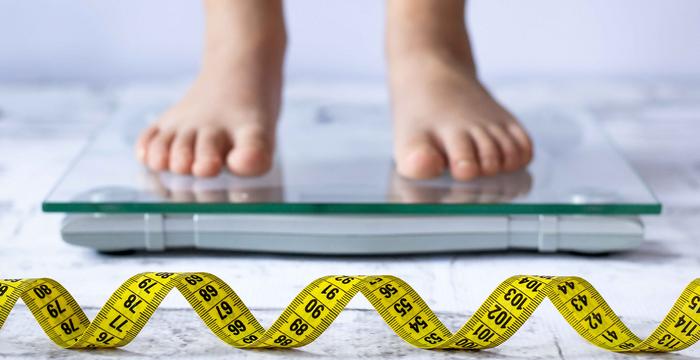BATON ROUGE – The increased popularity of telehealth and telemedicine in recent years has provided a new level of accessibility for patients to visit doctors and learn more about their health. Certain remote measurements, however, have long been speculated to be less accurate and less trustworthy than when gathered at in-person appointments.

Credit: Allyson Smith/PBRC
BATON ROUGE – The increased popularity of telehealth and telemedicine in recent years has provided a new level of accessibility for patients to visit doctors and learn more about their health. Certain remote measurements, however, have long been speculated to be less accurate and less trustworthy than when gathered at in-person appointments.
In a recently published study in the journal Obesity – “Validation of remote child weight and height measurements within a weight management trial” – Pennington Biomedical researchers Dr. Amanda Staiano and Dr. Alyssa Button have confirmed weight and height measurements taken remotely for a child weight management study. In a sub study within the Treatment Efforts Addressing Child Weight Management by Unifying Patients, Parents and Providers study, or TEAM UP, findings supported the accuracy and value of remotely gathered results of weight management outcomes for both research and clinical purposes.
“Combining videoconferencing and the guidance of a trained staff generates height and weight management for youth that is equivalent to the gold-standard of in-person visits,” said Dr. Staiano, who serves as Associate Professor and directs the Pediatric Obesity and Health Behavior at Pennington Biomedical. “Our 37 participants helped confirm these results, participating in an in-person visit and a remote visit within one week of each other. With clear instructions and the assistance of the participants’ parents at home, we were able to validate the data.”
The original study aims to manage and reduce weight in children between the ages of six and 15. Measurements taken remotely have proved accurate and comparable to the “gold standard” of in-person measurements and can enable greater access for families facing limitations to attend in-person study check-ins and measurements.
“This sub-study may only be a small portion of the larger TEAM UP study, but by verifying the results of at-home height and weight measurements, we are hopeful that this research will assist others,” said Dr. Button, postdoctoral researcher at Pennington Biomedical with a focus in pediatric obesity and health behavior. “This clarity will help to make telehealth more readily available to researchers and family doctors alike.”
Though accurate, there are some limitations, as gathering measurement data for this research study requires more than a bathroom scale. Calibrated scales, tape measures and carpenter squares were needed. Researchers who want to apply remote measurements may want to apply resource sharing or accessible community locations to obtain and share with researchers the requested measurements.
“A key component of our Population Health Division is to reach people where they are, and to leap barriers that would have otherwise excluded study participants from being engaged in studies that could directly affect their health,” said Dr. John Kirwan, Executive Director of Pennington Biomedical. “This sub-study further removes barriers, enhances remote telehealth, and improves engagement with participants. To affirm accuracy of remote data gathering provides benefits not just to Pennington Biomedical but to researchers everywhere.”
Pennington Biomedical joined with Washington University at St. Louis, the University of Rochester Medical Center and the American Academy of Pediatrics for the TEAM UP study, which was supported by an award from the Patient-Centered Outcomes Research Institute. Additional funding came from Blue Cross and Blue Shield of Louisiana and Louisiana Healthcare Connections.
About the Pennington Biomedical Research Center
The Pennington Biomedical Research Center is at the forefront of medical discovery as it relates to understanding the triggers of obesity, diabetes, cardiovascular disease, cancer and dementia. Pennington Biomedical has the vision to lead the world in promoting metabolic health and eliminating metabolic disease through scientific discoveries that create solutions from cells to society. The Center conducts basic, clinical, and population research and is a campus of the LSU System.
The research enterprise at Pennington Biomedical includes over 480 employees within a network of 40 clinics and research laboratories, and 13 highly specialized core service facilities. Its scientists and physician/scientists are supported by research trainees, lab technicians, nurses, dietitians, and other support personnel. Pennington Biomedical a state-of-the-art research facility on a 222-acre campus in Baton Rouge.
For more information, see www.pbrc.edu.
Journal
Obesity
DOI
10.1002/oby.23972
Article Title
Validation of remote child weight and height measurements within a weight management trial
COI Statement
The authors declared no conflict of interest.




